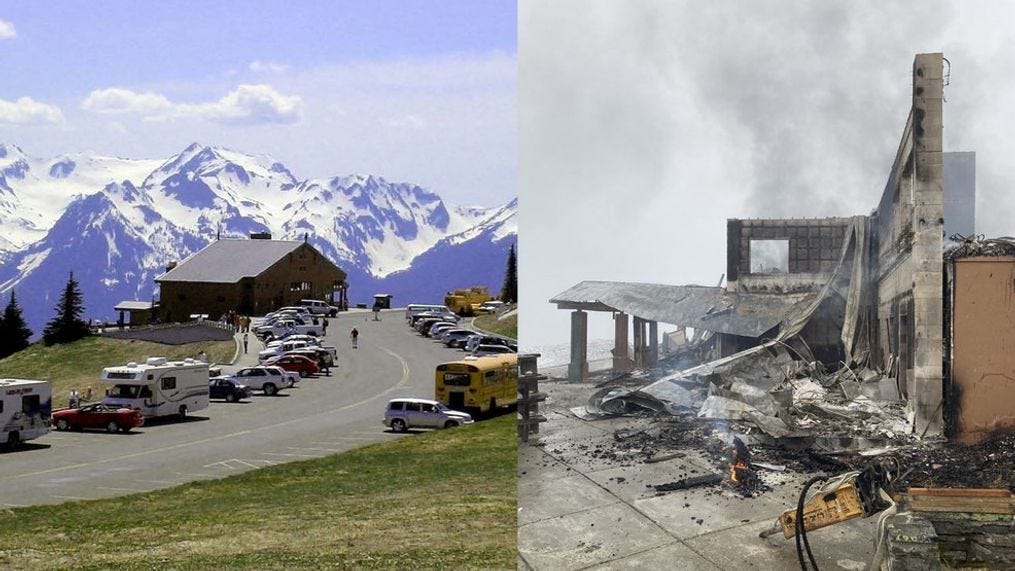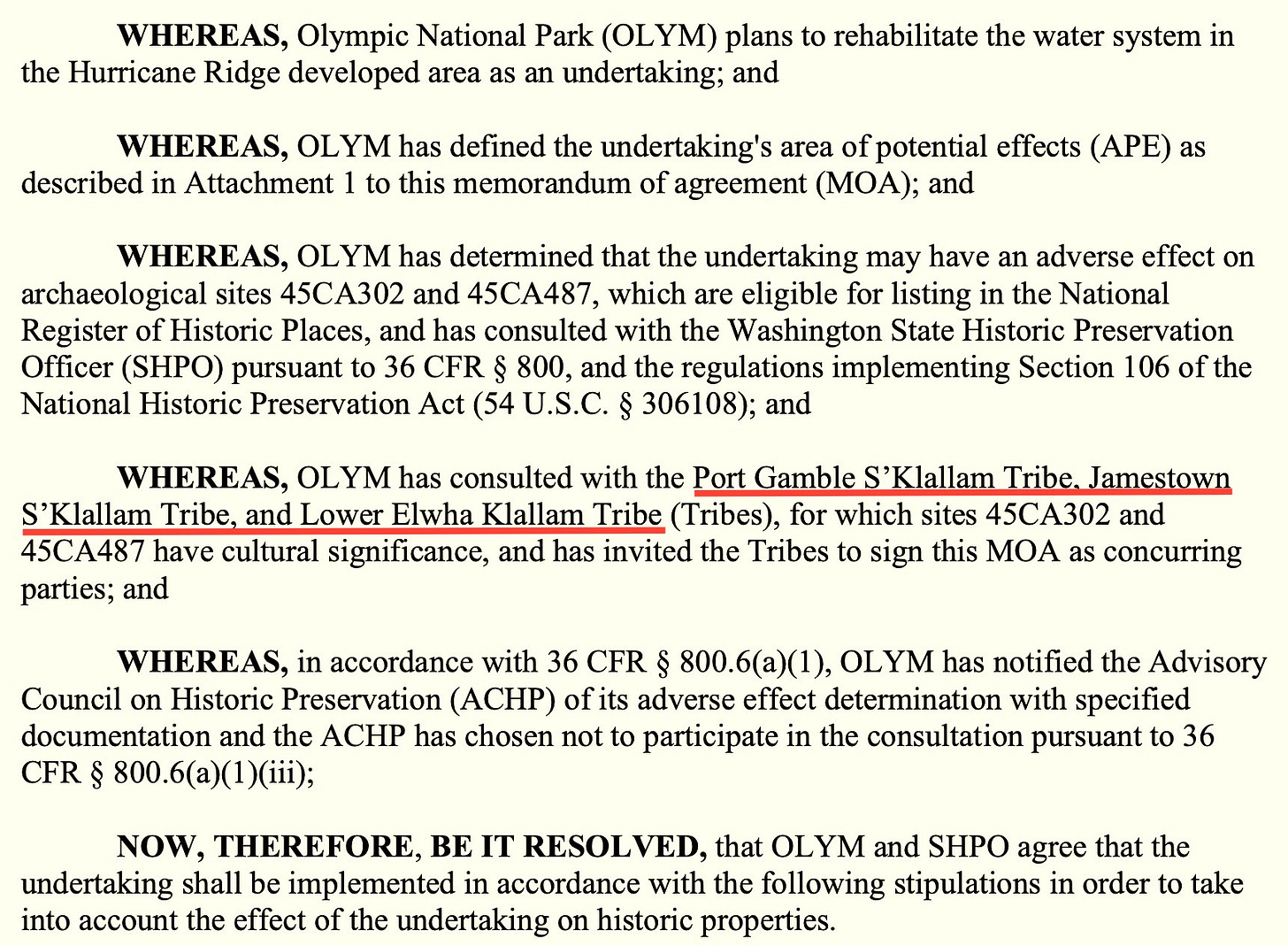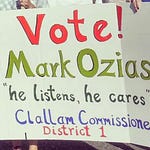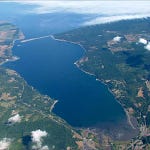When the Hurricane Ridge Lodge burned down, Clallam County lost more than a building—it lost the heart of its tourism economy. Now, instead of fast-tracking a rebuild, Olympic National Park is cutting secretive deals with tribes to shape the new lodge’s story, exhibits, and even construction oversight. Public land is supposed to belong to all of us, but the question now is: will Hurricane Ridge remain America’s park—or become someone else’s domain?
Happy Labor Day! As thousands of visitors crowd into Olympic National Park this weekend, it’s worth remembering just how vital this place is—not only for recreation but also for our economy. The park draws over 3 million visitors annually, and Hurricane Ridge remains one of its crown jewels. When the lodge there burned down in May 2023, it wasn’t just a building that was lost—it was a cornerstone of Clallam County’s tourism economy.
More than two years later, the site still sits in rubble. The National Park Service (NPS) reportedly has yet to begin the design phase of a replacement.
What really happened to the lodge?
The official investigation could not determine the exact cause of the May 7, 2023 fire. Investigators narrowed it down to the northeast corner of the structure, but with the building under renovation and unoccupied, no clear ignition source was found.
What’s clearer, however, is the direction NPS seems to be heading with its rebuild plans. And it raises big questions about fairness, transparency, and who truly controls public lands.
The Memorandum of Agreement (MOA)
Recently, NPS signed a Memorandum of Agreement with the Washington State Historic Preservation Officer and three tribes: the Port Gamble S’Klallam, Jamestown S’Klallam, and Lower Elwha Klallam.
The agreement states that two archaeological sites near the Ridge are eligible for listing in the National Register of Historic Places. Because of this, the tribes will now have a direct role in monitoring construction, reviewing reports, shaping exhibits, and even influencing interpretation and education programs at the new lodge.
Let that sink in: A public lodge, built with federal funds, in a federal park, will now carry the imprint of one tribe’s cultural narrative.
NPS says “Attachment 1” of the agreement—which defines the precise area of archaeological significance—cannot be released for public review due to “sensitivity.” That means the public is left in the dark about what was actually found.
And it begs the question: why were “traditionally coastal” tribes suddenly claiming cultural sites nearly a mile high in the Olympic Mountains and 18 miles from salt water?
Selective history?
The MOA requires NPS to work with the tribes to “highlight indigenous use of the Hurricane Ridge landscape.” That sounds harmless—until you consider how history can be selectively told.
Will this interpretation discuss all aspects of tribal history, including the less flattering ones?
That the Jamestown S’Klallam reportedly slaughtered 17 men, women, and children of the Tshiminan tribe.
That the Makah kept Russian and Japanese shipwreck survivors as slaves.
That the Klallam tribes allied with Chief Seattle in the extermination of the Chemakum people.
Or that the Klallam Tribes displayed the heads of their enemies on poles.
Or will it be the kind of one-sided, guilt-driven curriculum that the Jamestown Tribe has already introduced into Sequim schools—where tribal victimhood is emphasized while uncomfortable truths are conveniently omitted?
History is complicated, and no group’s past is without stains. To present it otherwise in a federally owned lodge meant for all visitors would be misleading.
A Canadian warning
This issue isn’t unique to Washington. In British Columbia, the Lil’wat and N’Quatqua First Nations recently forced a one-month closure of Joffre Lakes Provincial Park so they could conduct cultural practices. They originally demanded two months, and already the province has cut visitation by half.
When protesters blocked the highway, a Conservative MP pointed out the obvious: public parks belong to all citizens, not just one group. Yet the precedent being set is one of gradual exclusion.
The hypocrisy
Here’s the hypocrisy: Olympic National Park belongs to every American taxpayer, but decision-making power is being carved out for a handful of special interests. While tribes argue for inclusion and recognition, they are also seeking exclusive authority over interpretation and access—sometimes at the expense of the broader public.
It’s not “anti-tribe” to ask for fairness. If NPS truly believes Hurricane Ridge belongs to all, then it must resist pressure to hand over control of the new lodge to any one group, no matter how politically influential.
Hurricane Ridge is too important to Clallam County—and too important to the millions of visitors who come here every year—to become a political bargaining chip. The lodge should be rebuilt quickly, transparently, and in a way that honors the shared history of all Americans.
Olympic National Park must never forget: this park belongs to the people. All of us.















